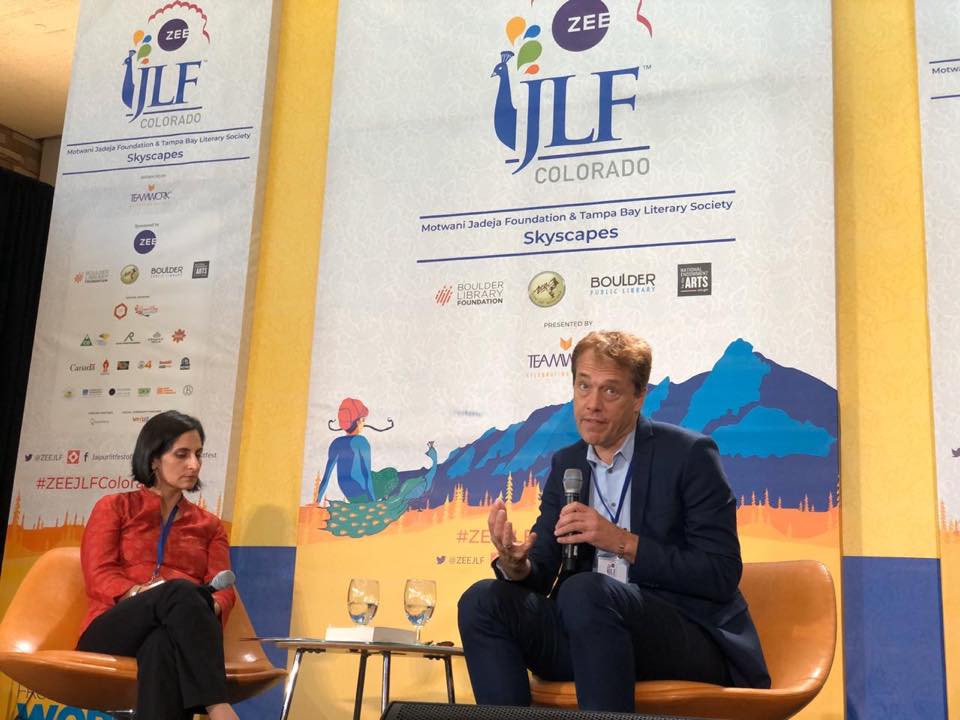


Empire of Cotton: Sven Beckert with Pardis Mahdavi
Learning history through the stories of one nation limits us. In order to truly understand history, said Harvard University Professor Sven Beckert at JLF Colorado, “We have to tell our stories from international perspectives. We are all on Spaceship Earth. We are all in this together.”
Although this sentiment could apply to the entire festival at Boulder, Colorado, Beckert had taken the stage with Arizona State University Professor Pardis Mahdavi to talk about how one humble yet crucial material – cotton – has played that connecting role.
Beckert’s recent work, ‘Empire of Cotton: A Global History’, spans the 5,000-year history of the cotton trade, from the Indus River Valley to modern China. Beckert said that the story of cotton holds the key to how the modern world came about: global industrialization itself, as well as colonialism and enslavement that came with the empire’s rise.
Two economic forms invented in the cotton trade radically affected history, Beckert said. One was the factory, and the other was the plantation.
The first factories of the 18th century ushered in a vast expansion of wage labor as well as the “vast expansion and intensification of slave labor”, he said. The invention of the cotton gin, originally expected to reduce the labor required to process cotton, processed it so quickly that even more people were abducted and sold into slavery to feed the factories.
The plantation itself also emerged in the 18th century as a new economic form as a result of this trade, Beckert said. India had been the center of the cotton trade for the 4,000 years prior, mostly through smaller-scale production. But with new colonies in the Caribbean and then the United States, cotton plantations began to shift the balance.
A cotton crop, while also being water-intensive, exhausts the land. Increasing areas of land must be brought under cultivation in order to keep production steady. In the American South, Beckert says, this happened through displacement of Native Americans to Oklahoma and other parts of the United States.
The irony of this, Beckert pointed out, “is that capitalism is supposed to be about property rights, but it ended up creating enormous dispossession”.
Madhavi also brought up the topic of state involvement in the growth of the cotton industry: the support and guarantee of slavery by the law, for example.
“The state was very important. How important it was – was even a surprise to me,” Beckert said. “In this country we have this belief that free enterprise is the basis of capitalism. But if you look at the history of it, and not the ideological construction, capitalism is a co-production of free enterprise and the state.”
In his teaching career, Beckert said, students flock to his classes on the history of capitalism. “They want to understand this thing that dominates their lives,” he said.
Madhavi echoed this, saying that climate change is beginning to bring these social structures into focus. “In the conversation about the Green New Deal, people are saying ‘we’ve got to tackle what’s happening to the earth,’” she said.
Being a historian and analyzing these structures has (perhaps surprisingly) given Beckert grounds for hope.
“What this tells you is that the world is already a political construction,” said Beckert. “We are not just victims of some system, but something we can politically shape.”

Leave a comment